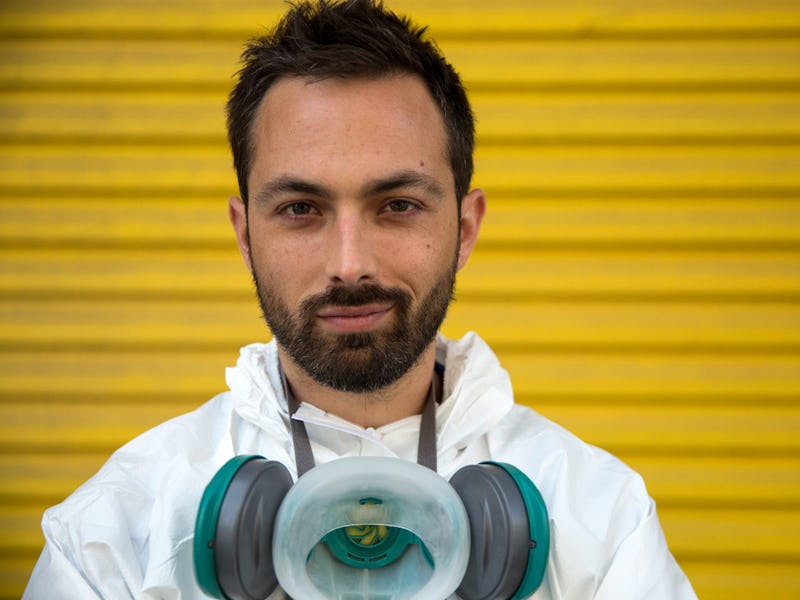March for Science Host Derek Muller: "How Do We Convince People?"
"People get into these tribes, and facts might not matter."

On Saturday, science advocates in Washington, D.C. and over 500 international cities will rally together in the March for Science, a bold display of support for science and its integral role in modern societies, governments, and economies. The march is a response to the increasing polarization of Americans into pro- and anti-science camps — made all the more apparent after the election of President Donald Trump — and is meant to be a call on political leaders to enact “evidence-based policies in the public interest.”
But how do you convince people who don’t support science to do so?
That’s arguably the more important, unspoken goal of the March for Science, and it’s not likely to be achieved by marching down America’s streets with signs. Doing so, according to science communicator and Veritaseum creator Derek Muller, who is co-hosting the march in D.C. with Roots member and science enthusiast Questlove, requires acknowledging the fact that the pro- and anti-science divide isn’t a battle of ideology — it’s a battle of identities.
“How do we convince people about science? The research shows that people get into these tribes, and facts might not matter,” Muller told Inverse this week. “How do we change minds if what we’re really trying to change is identity?”
Derek Muller, science communicator and special correspondent on Bill Nye Saves the World, will co-host the March for Science.
Muller rose to YouTube stardom because of the popularity of his science web series Veritaseum and acknowledges tribalism has deep roots. “Maybe in the first place we should try to avoid having identity tied to science so clearly,” he says.
The relationship between identity and science support has recently been subjected to much scientific scrutiny. One study presented at the Society for Personality and Social Psychology conference in January showed that it isn’t a person’s ignorance or lack of education that leads to a rejection of science, but rather their tendency to choose facts that are consistent with their existing opinions.
That “existing opinions” finding is consistent with the results of a 2012 Cognition study that shows that scientific education doesn’t necessarily supplant previously held (“naïve”) and incorrect beliefs. For example, educated people who knew the Earth revolved around the Sun still showed signs of hesitation when verifying that statement, a result that the researchers chalk up to their stubborn attachment to old beliefs.
It appears that a person’s pro- or anti-science mentality isn’t so much steeped in facts as it is on their acceptance of those facts. But it’s not impossible to change.
“We’ve seen shifts on very contentious issues, and I’m hoping that science is the next one to chip away at existing chasms,” Muller says, citing extremely divisive identity-linked topics that have reached some level of compromise, like government-funded health care and same-sex marriage, as proof that firmly entrenched mindsets can be changed with the proper coaxing.
“I don’t know how you chip away at it. You have to take it one step at a time,” he says.
A hand embroidered sign is held aloft at an anti-fracking protester near Parliament on January 26, 2015 in London during a protest of fracking legislation.
The March for Science has been criticized for its lack of diversity and for encouraging scientists to involve themselves in politics, largely out of concerns that doing so will discredit the science community — which has already been denounced by conservatives for pushing a liberal agenda — as a whole. But the confusion between what is political and what is partisan only further illustrates Muller’s point: Science isn’t about picking identities — it’s about putting aside personal biases and having respect for facts that are derived in an objective way.
“I’m also concerned that the March gets painted in a particular partisan light and then further opens this divide,” says Muller. “That’s the worst thing that could happen.”
Muller, who on Saturday will speak on the D.C. March’s main stage facing the South Lawn of the White House, is optimistic. He has to be. “I don’t know what other option we have,” he says. “We’ve got to keep experimenting.”